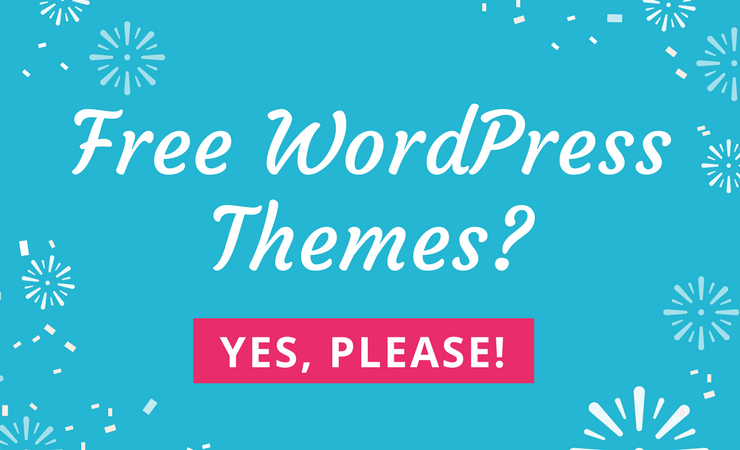Website building platforms have evolved over the years to include users who aren’t particularly programming literate. WordPress page builders have lead the way in allowing website owners to bring their ideas to life without having to stare endlessly at a dull text editor.
WordPress page builders pack powerful functionality that makes it easier for users to build custom layouts for their websites. Not only do they save you a bunch of time but they also allow you to live preview the front-end while you’re designing.
WordPress users are always on the lookout for resources that can do just about everything. Although there are a number of excellent WordPress page builders – both free and premium – to choose from, in this post, we’ll take a step back and discuss the pros and cons of using them.
Let’s get started.
What Are WordPress Page Builders?
In a nutshell, a WordPress page builder is simply a plugin that adds drag-and-drop functionality to the back-end of your WordPress website. This means that if you have a design in mind, then bringing your ideas to life on your website is entirely possible – even if you don’t know HTML and CSS.
WordPress page builders allow users to structure and design their site’s web pages with very little effort. If we delve a little deeper into the technical bits behind its functionality we’d find that page builders use components to construct fully responsive page layouts inside of a grid view.
Aside from the technical bits, page builders save you from having to scour through endless theme directories and markets looking for the perfect solution. In addition to this, you’re able to put your website’s layout and design together at blazing fast speeds that wouldn’t have been possible if you were tinkering around with CSS. WordPress page builders also save users time from having to switch back and forth between the site’s back-end and front-end to preview results.
WordPress page builders can potentially be ideal solutions for designing high-quality websites super fast and without having to code. But are page builders too good to be true? It’s up to you to analyze the pros and cons of WordPress page builders and then make an informed decision.
What Are the Advantages of Using a WordPress Page Builder?
We’ll start out by discussing the advantages of having a reputable page builder plugin installed on your WordPress site.
All-in-One Functionality

WordPress page builders typically pack neat, on-page functionality that help grab the reader’s attention and promote user interaction. This can include anything from sliders to pricing tables and social sharing buttons to progress bars – the list goes on and on.
The alternative to using a page builder for leveraging all these cool features is to install dedicated-functionality plugins. And if you’re someone who likes to go all out when it comes to on-page features, then you’ll likely end up with a bulk of plugins.
Not to mention you’ll also have to factor in the effort (and cost in case of premium plugins) involved in searching for reputable plugins (each for a different purpose), learning how to use them, dealing with potential incompatibility issues, and keeping them up to date. It’s much simpler to go with an all-in-one solution.
Custom Layouts

Those of us who don’t know the basics of coding mostly depend on WordPress themes when it comes to taking care of our site’s aesthetics. And if you’re anything like me, you’ll go through dozens of theme demos before landing on one that is the closest match to the idea you have in mind.
Although there are a wide range of niche-specific themes out there to choose from, hardly any meet your requirements down to every last pixel. Instead of compromising on design aesthetics, why not spring for a WordPress page builder that’ll let you build your dream website?
With a blank canvas and loads of drag and drop page elements up your sleeve, there’s practically no limit to what you can create. Most WordPress page builders also come with professionally crafted templates to give those of us who aren’t creatively inclined a much-needed helping hand.
No Coding Required

One of the key reasons why WordPress is a massively popular content management system is that it doesn’t require the user to be technically savvy. Page builders reinforce the idea behind allowing non-developers to create high-quality without having to write a single line of code. For those of you who don’t know HTML and CSS, it could take weeks on end to create even the simplest of web designs from scratch.
WordPress page builders typically feature an intuitive user interface with drag-and-drop functionality. This makes it incredibly easy for all kinds of users to add page elements, resize them, and move them around to try out different designs. In addition to this, some solutions also come with a live preview option right out of the box so users can see the final result without having to switch between the back-end and front-end repeatedly.
What Are the Disadvantages of Using a WordPress Page Builder?
Although WordPress page builders make it seemingly easy to create a killer design for your website, it may not be a good idea to use one. Let’s walk through three of the main disadvantages of using them.
The Lock-In Effect
We covered some the technical bits of page builders briefly in the previous section. Let’s discuss them a little more. WordPress page builders automatically convert the layout you create into its corresponding modular shortcodes. Since the code is essentially hidden, it allows page builders to feature complex designs with lots of customization options.
This quickly becomes a problem because shortcodes are plugin-specific. Once you deactivate the page builder plugin, all the shortcodes will be ineffective and your site’s design will go kaput. What this means for you is that, in a way, the page builder forces you to keep it activated on your site. It locks you in.
And if you want to stop using the plugin altogether, you’ll have to re-design your entire site from scratch. As of this writing, shortcode over-dependency is a major problem most WordPress page builders come with.
Slow Page Loading Time
Remember the cool on-page features we listed as advantages? They come at a relatively heavy cost in terms of site speed and server space. Even though page builders save you from having to install a number of single-feature plugins, they still take up a significant amount of space on your server.
Additionally, all the shortcodes you add to your site are nothing more than simplified versions of complex code chunks. In simple English, lots of on-page features means lots of shortcodes means lots of hidden code which leads to slow page loading time. Increased page loading time affects your site’s user experience and its search engine ranking.
Not Ideal for Everyone
WordPress page builders empower everyone – even those of us that aren’t creative-minded – to create custom designs for our sites. This doesn’t mean that all of us should be designing. Although page builders make for great tools that allow you to try your hand at web design, at the end of the day it’s often a better idea to pass on the baton.
Of course, this doesn’t necessarily have to be a bad thing. By outsourcing your website’s design you can let the professionals do what they do best while you invest your time into growing your brand.
Conclusion
WordPress page builders can be hugely useful, or not at all, depending upon your requirements and level of web design expertise. We’ve looked at both sides of the story and, hopefully, you’re in a good position now to make an informed decision.
Let’s quickly recap the main advantages of using WordPress page builders:
- They come with all kinds of on-page features that increase your site’s visual appeal.
- Page builders allow users to create custom layouts from scratch or leverage pre-packaged templates.
- They’re incredibly easy to use for non-developers and users who shy away from writing code by hand.
Are you leaning towards using a WordPress page builder to design your website? Let us know in the comments section below!





 Epicurean Theme
Epicurean Theme